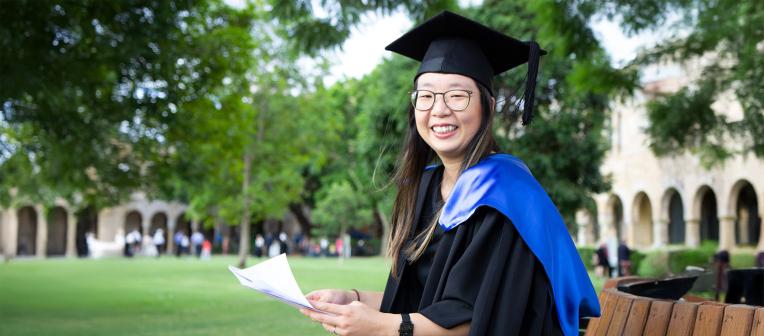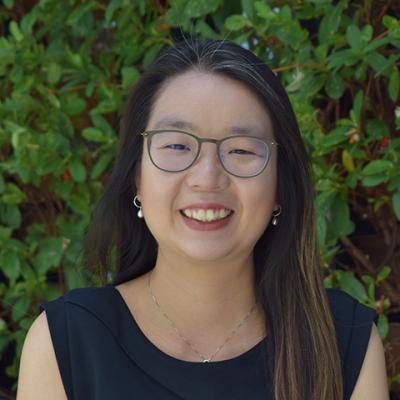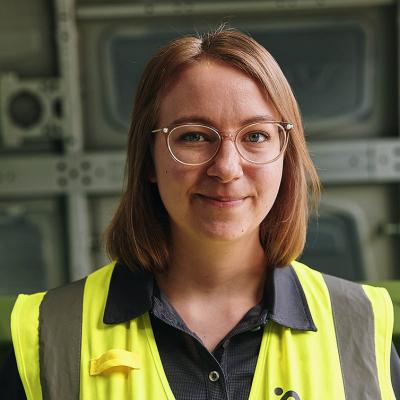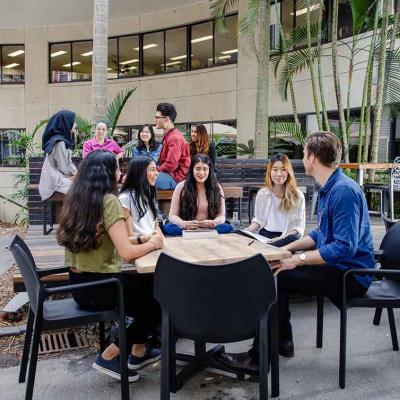Imagine a career where every day involves exploring the human mind, connecting deeply with others, and guiding them towards healing and growth.
In the world of clinical psychology, this isn't just a dream – it's your reality. But where do you start? How do you become a clinical psychologist, and what exactly does it entail?
To shed light on this journey, let's hear from Sarah Lee, a registered clinical psychologist, UQ Bachelor of Psychological Sciences (Honours) and Master of Clinical Psychology graduate, and current PhD candidate.
What is a clinical psychologist?
A clinical psychologist is a mental health professional trained to assess, diagnose and treat a wide range of psychological disorders and emotional difficulties. They use evidence-based therapies and interventions to help individuals overcome challenges, improve their mental wellbeing, and enhance their overall quality of life.
Following my passion to become a clinical psychologist
A career in clinical psychology was a no-brainer for me. I find myself inclined and curious about people’s stories and how they come to be who they are. From a young age, I knew I wanted to work with people; however, the path didn't become clear until much later in life.
Psychology was one of those subjects I looked forward to learning more and more. It felt like something I could never stop learning about – that challenged me and intrigued me. It felt like something I could see myself doing for a long time, perhaps in varied roles.
Passion in practice
I am most passionate about 2 things:
- Firstly, I am deeply interested in the impact of attachment theory on creating a kinder, more compassionate world. By understanding that humans inherently strive to connect and cope in the best ways they can, we can approach others with curiosity and compassion, especially when their behaviour doesn’t resonate with us.
- Secondly, I am passionate about exploring the connections between complex trauma and attachment in autistic individuals. I am fascinated by how these relationships develop, evolve and manifest both behaviourally and emotionally.
Embracing the role of clinical psychologist
As a clinical psychologist in private practice, I work with a diverse range of clients, including neurodivergent individuals and those with a background of complex trauma. I enjoy guiding individuals and couples as they embark on a journey towards self-discovery and healing. Providing a safe space for exploration and reconnection with themselves and loved ones brings me immense joy and fulfilment.
My daily responsibilities encompass both face-to-face client interactions and behind-the-scenes tasks. While client sessions are crucial, there's also significant time dedicated to formulation, preparation, clinical supervision, and documentation. Continuous professional development is essential in staying updated with the latest advancements in the field and enhancing skills.
In addition to my clinical practice, I am pursuing a PhD in parenting within autistic families. Balancing research with clinical work allows me to maintain a holistic perspective and stay grounded in the scientist-practitioner model, enriching both my intellectual curiosity and practical skills.
Rewards and challenges
For me, the most rewarding moments as a clinical psychologist happen in session. The moments where I connect with my clients in our common humanity is what makes this job worthwhile for me.
I also find that I grow as a person and as a psychologist alongside my clients many a time. It’s a gift that keeps on giving – that is, if you have the necessary boundaries and self-care, which leads me to the challenges of the job.
One of my challenges was navigating self-care and boundaries to prevent burnout. I’m much better at this now than I was when I first started. After all, most of us are attracted to this vocation because we want to help others. I had to learn the hard way that, to help effectively, I too need to look after myself to prevent burnout and work through some of my own feelings around putting down boundaries. Navigating and sitting with our own challenging feelings and thoughts is very much part of the role.
Qualities for success
Compassion, self-reflection and self-awareness are essential qualities for success in this profession.
Success, to me, means finding joy in my work and continually striving for improvement. Compassion is vital as it fosters a genuine desire to help others. Self-reflection and self-awareness are equally crucial, considering the unique interpersonal dynamics of our work.
As psychologists, we influence change in our clients through our own experiences, biases and assumptions. Acknowledging and understanding these factors allows us to relate to clients authentically and effectively.
"By embracing our humanity and actively practising self-awareness, we can cultivate a more mindful and impactful therapeutic approach."
Becoming a clinical psychologist: my education journey
My journey through education to become a clinical psychologist followed a postgraduate coursework pathway.
It began with completing a Bachelor of Psychological Sciences (Honours), graduating with first-class honours. Following this, I pursued a Master of Clinical Psychology while also gaining practical experience in related fields.
Following graduation, I transitioned into working as a general psychologist while completing an additional 2 years of full-time supervised practice to attain endorsement as a clinical psychologist.
In Australia, obtaining the title of psychologist requires undergraduate and postgraduate studies in psychology to obtain registration.
For undergraduate psychology studies at UQ, options include:
- Bachelor of Psychological Science (Honours)
- Bachelor of Arts (Psychology major)
- Bachelor of Science (Psychology major)
Postgraduate clinical psychology program options include:
Advice for aspiring clinical psychologists
If this vocation is what you’re drawn to – follow your heart! I had so many doubts creep up along the way... “Will I be good enough?”, “Will I still like it when I get there?”, but there was also a voice within that kept me going.
The journey ahead can and will feel daunting, but being someone who has gone through it, it is worth it in the end. It will change you.
While you can’t really give being a clinical psychologist a go before you’re there, I’d encourage some work experience in a somewhat related field (e.g. some phone counselling roles or support work). Often the skills you learn in these roles are transferable and remain invaluable when you do become a clinical psychologist. They also give you a feel for whether being in a role like that might be something you can see yourself in.
Want to learn more about what your journey to becoming a clinical psychologist will involve? Read our studying psychology FAQs.






